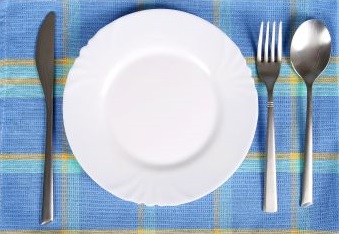Fasting to Lose Weight

Fasting to Lose Weight
Caveat: Always consult with your physician before considering serious fasting to lose weight, especially a long-term (more than a day) or a liquid fast! This is critical because unsupervised fasting may cause heart arrhythmia and other issues that could lead to death!
I recently watched a documentary that was done a few years ago by a 32-year-old man who weighed in excess of 300 pounds and had decided to do something about it.
As a way to share his experience (and maybe help stay motivated), he filmed the significant events that occurred during a 55-day water fast.
Here are some points I took away from this documentary:
1. It is interesting to note that he had a difficult time finding a physician who would work with him on this project, probably because it could be dangerous to his health.
2. He had to do two weeks of juice fasting before and after the water fast, so that means he was “fasting” at some level for almost 12 weeks!
3. He drank bottled water with electrolytes added, as a safety precaution, since electrolytes are necessary for the heart to function properly.
4. He checked his urine for ketones*, because their presence would indicate that he was burning fat for energy.
5. He did not lose as much weight as he thought he would.
6. He realized that he is an emotional eater,** but did not address that issue during the fast, at least based on what I saw. He also seemed to suggest that “fast food” was his meal of choice and that is what he craved most during the fast.
7. He seems like a very nice, caring person who was willing to be transparent about his experience and really wanted to resolve his weight issues.
Without going into all the details, the result of the fast was that he lost 44 pounds—40 pounds of fat, apparently, and 4 pounds of lean body mass. He also got rid of a chronic cough that had been bothering him.
Unfortunately, over time, he gained all the weight back and another 100+ pounds besides!
So, is fasting to lose weight effective?
The short answer is it depends on a number of factors, including the kind of fasting you are doing. The story presented above shows that it does not work for everyone and that it could be only a short-term solution and lead to more weight gain.
Your success may be determined by what type of fasting you choose. In addition, fasting in any form may not be for everyone.
Types of fasting to lose weight
-Water fast
This is the most severe and extreme type of fast and involves drinking water only, with no foods or other liquids for the duration of the fast.
-Juice fast
This is similar to a water fast except that juice is also consumed, which makes it less extreme. The effect of this fast would depend largely on type and quantity of juices that are included.
Some experts recommend using only freshly made juices, since bottled or canned juices lose some of their nutritive value over time.
-Liquid fast (usually with nutritive shakes)
Oprah is probably the most famous person to use a liquid fast to lose weight. This involves drinking specially designed nutritive shakes and is often undertaken with medical supervision.
-Single food (usually brown rice) fast
This is a more unusual type of fast where only one food, usually brown rice, is consumed along with water.
-Intermittent Fasting to Lose Weight
Alternate-day fasting is just what is sounds like where you eat only every other day, and may involve only eating for certain number of hours even on the eating day.
Eat-Stop-Eat fasting is maintaining water a fast for 24 hours several times a week.
Time-Restricted Eating involves limiting yourself to water for 16 hours and then eating for 8 hours. (For example: Eat breakfast at 9 a.m. and dinner by 5 p.m. followed by fast until next morning at 9 a.m.) There are also different forms of this type of fasting, such as 12:12, where the eating window is longer, or shorter.
Warrior fasting involves water fasting for 20 hours and eating for four hours. This type of fast may allow some raw veggies during the fasting period and usually incorporates physical exercise.
OMAD fast
This is a type of fasting where you limit yourself to One Meal A Day, making sure that the meal is nutrient dense and provides satiety.
Fasting, purely as a spiritual exercise, as opposed to fasting to lose weight is as old as time, but that is not the subject of this article, even though there could be an overlap between fasting to lose weight and fasting for spiritual reasons.
MY TWO CENTS about fasting to lose weight

My husband and I generally try to fast at least 16-19 hours and eat over a 5-8 hour period, which does not feel like fasting really, since we are sleeping for at least half of the 16 hours and eating after dinner is not something we generally did anyway. As we have gotten older, we found that quitting eating earlier in the evening made for better sleep and less indigestion.
The nice thing is that, for us, this type of fasting is effective without being arduous, so it is easy to maintain most of the time. Of course, we make exceptions for special occasions or unexpected events, since occasional flexibility in whatever you are doing with your diet makes it more sustainable long-term.
One more thing: There is a school of thought that says eating first thing in the morning is the worst thing you can do in terms of mood and storing fat. You can read more about this idea in a book called Maimonides and Metabolism if you are interested.
*What are ketones?
If you have ever been on a low-carb diet, or a fasting diet, you may have heard of ketones. These are chemical substances that your liver produces as part of fat metabolism. Normally, these ketones will be metabolized so that very few, if any, will show up in your urine. However, if your body cannot get enough glucose (usual source of energy), it will switch to using body fats (and some muscle tissue) for energy. This results in more ketones being produced, which may show up in your urine. This is why those on fasting diets often will test for ketones using special keto sticks designed for that purpose. The implication is that if you have ketones in your urine, your body is burning fat.
When you are in ketosis, you may experience fatigue, bad breath, constipation, lack of focus.
If ketones build up in the body for a long time, serious illness may result.
**What is emotional eating and how does it relate to fasting to lose weight?
For some people, emotions such as anger, happiness, frustration, boredom, etc. trigger appetite. A difficult day, a broken relationship, a successful job interview or even your team winning the game may cause you to want to eat, and often, to eat something that is not necessarily good for you.
There are some people who eat when they are upset and some who cannot eat in the same situation. The emotional eaters are more likely to be in the first group.
This is an issue when considering how to lose weight, since emotional eating will not be addressed by diets that only deal with dietary changes or managing hunger.
Advantages of fasting to lose weight—particularly intermittent fasting
1. By its very nature, fasting involves a reduction in calories
2. Some types of intermittent fasting seem to change hormone levels, particularly insulin and cortisol, to facilitate weight loss.
3. By lowering insulin resistance and inflammation, intermittent fasting may reduce risk of certain diseases such as diabetes and heart disease. (There is some evidence that fasting may help prevent cancer since cancer cells thrive on sugar and fasting depletes the sugar available. More research is needed so, stay tuned!)
4. Intermittent fasting as described above, may increase metabolic rate so that calories are burned more efficiently
Disadvantages of fasting to lose weight--particularly extreme fasting
1. Fasting, particularly in its extreme forms, may be dangerous and could result in death.
2. It is difficult to sustain as a way of life, so the possibility of gaining weight back is high.
3. Fasting may put the focus on food rather than on enjoying your life. (Of course, in a spiritual fast, the focus may be different.)
4. Extreme fasting for more than a day or two may slow your metabolism as well as deprive your body of necessary nutrients.
5. If you spend a lot of time in ketosis as described above, you may experience tiredness, bad breath and even serious illness.
6. Fasting may make your social life more difficult.

Rethinking how often you eat
It can’t be overstated that if you plan to try fasting to lose weight, you should consult your physician, especially for a water or juice fast lasting more than a day or two.
In the U.S. and other developed countries we have an abundance of food and we spend a lot of time and money eating and drinking! This website is devoted to helping you make good choices in the foods you eat.
Perhaps rethinking how often we eat is as important as caring about what foods we eat!
Eat and be healthy with my warmest regards,


